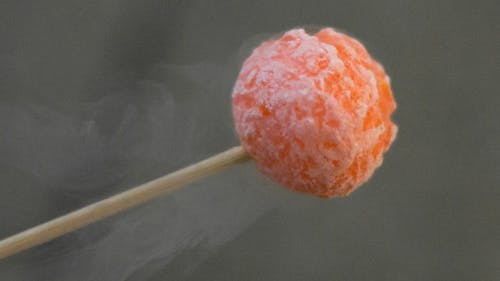'Dragon's Breath,' poisonous mushrooms among state's top health concerns this quarter

Poisonous mushrooms and "Dragon's Breath" are among the top health risks for July, August and September.
The New Jersey Poison Information and Education System (NJPIES) recently sourced and released an executive director's report in Rutgers Biomedical and Health Sciences’ quarterly.
One of the most severe threats this quarter included was respiratory injuries resulting from the consumption of frozen dessert food containing liquid nitrogen that often goes by the name “Dragon’s Breath,” “Heaven’s breath” or “Nitro puff,” according to the report. These snacks are made with liquid nitrogen to give the effect of breathing out smoke or vapor, like a dragon, after consumption.
Many frozen drinks and food products typically contain traces of liquid nitrogen, but it evaporates before consumption and is harmless. When it is added at the point of sale, the extremely low temperature leftover by liquid nitrogen can lead to an injury similar to frostbite in the mouth and internal organs, according to the report.
“Our most recent case involved a female who required evaluation in a hospital emergency room after ingesting two Dragon’s Breath puffs,” said Executive and Medical Director of the NJPIES Dr. Diane Calello. “This patient experienced what she described as severe acid reflux.”
The report mentioned another threat that involves an unusually high amount of mushroom poisoning exposures over the summer. The overgrowth is thought to be a product of this past summer’s extraordinary temperatures, high humidity and frequent rainfall.
Depending on the species of mushroom, a few bites can lead to serious health risks. Even the cooking process cannot entirely stunt the toxic effects of some mushrooms.
“This is a serious issue. No matter the scenario, it is unsafe to pick and eat mushrooms found in the wild,” Calello said.
The misuse and misplacement of pool chemicals over the summer also resulted in a small increase of Poison Center calls.
The report cited one caller developed a cough and shortness of breath after opening pool chemicals in a poorly ventilated area. Another caller stated that their younger siblings developed breathing problems after opening the unsecured lid of a pool chemical container that had been left in the sun and inhaling the chemical’s fumes.
“Some pool and hot tub chemicals, which are necessary to prevent the growth of harmful bacteria in the water, can be dangerous and must be used and stored properly,” Calello said. "For example, chlorine can cause eye irritation, breathing problems and lung injury if used in high concentrations or in poorly ventilated enclosed spaces.”



